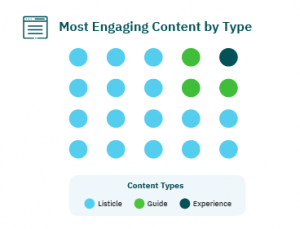It’s no secret that consumers are changing the way they discover and interact with local businesses. People have shifted away from traditional media and now increasingly rely on digital resources, such as mobile search, online directories, review sites, email and social media. For local business owners who operate on tight budgets and typically without access to marketing expertise, online marketing can often seem too complex to tackle. This is not only driven by more fragmented media outlets and online channels, but also the vast array of marketing technology that is supposed to “help” simplify this dynamic.
Local business owners are being challenged to rethink where they market and how to stay in touch with existing loyal customers. To help local business owners understand the online marketing landscape, I’ve boiled it down to three simple categories that I see as essential for both getting and keeping customers:
1. Establish a strong foundation on the web: Now, more than ever, a local business must have a website that provides accurate and relevant information about its products or services to attract and engage potential customers. That website needs to be appropriately optimized so that it’s found in relevant online searches.
It’s also important to have a website optimized for mobile devices. According to BIA/Kelsey, a local media research and advisory service company, more than 50% of local search will occur on mobile devices by 2015, and it has also been found that 67% of people say that when they visit a mobile-friendly site, they’re more likely to buy the product or service.
Beyond this, a local business should establish business Facebook and Google+ pages, as well as building consistent and extensive directory listings.
2. Build up your online reviews: More than three out of four consumers’ purchasing decisions are impacted by online reviews (source: Ipsos Thinking Exchange). Despite that, Yodle’s Small Business and Online Reviews Survey found that 55% of local businesses aren’t getting online reviews and only 13% are asking for them.
Local business owners should ask existing customers to post reviews and make it as easy as possible for them to do so. For example, give your mobile device to a customer immediately after you complete a job so they can quickly and easily review your work.
In addition to posting reviews on their website, local business owners should aim to secure a reviews presence on both industry-specific sites — e.g., medically or legally oriented sites — as well as horizontal sites like Facebook, Google+ Local, Angie’s List and Yelp. It’s important to consider all the different places that potential customers may try and find you.
3. Develop impactful customer communications: There are a number of different ways to communicate with consumers to attract both repeat and new business. One example is to engage through social media. 78% of consumers’ purchasing decisions are impacted by the posts made by businesses they follow on social media (source: Market Force). Actions as simple as posting photos or customer reviews, or celebrating a success in a status update can help a business.
Another option is to offer special promotions. Consider that more than half of U.S. adult Internet users redeem a digital coupon (source: eMarketer ). Local businesses should publish offers on their website and social media properties to take advantage of this trend.
In today’s world, online marketing is critical for local business success. It takes time to make it happen whether that’s by yourself or with a vendor to maintain and measure the success of your online marketing program.
Read more on Huffington Post
(440)
Report Post




